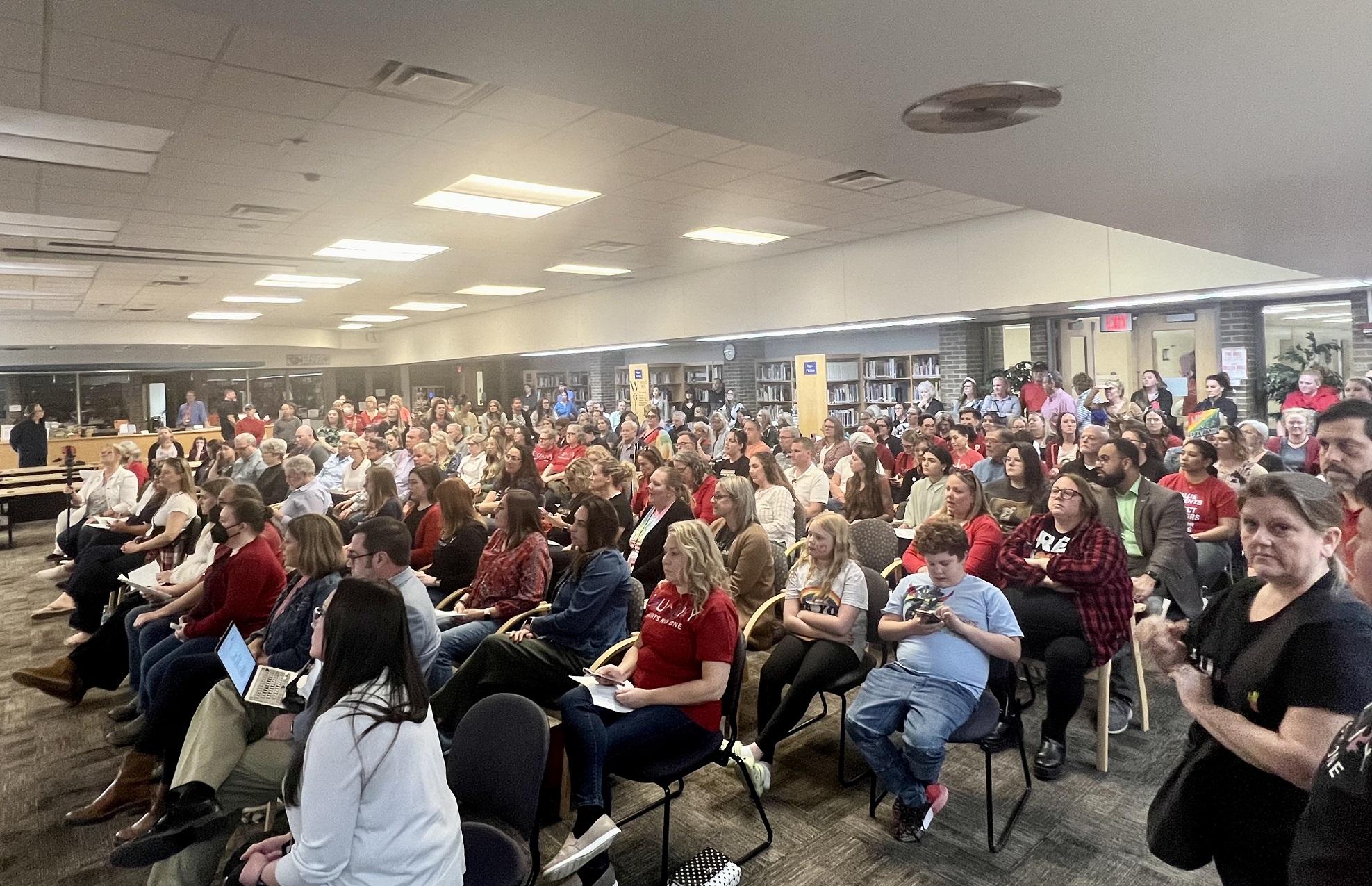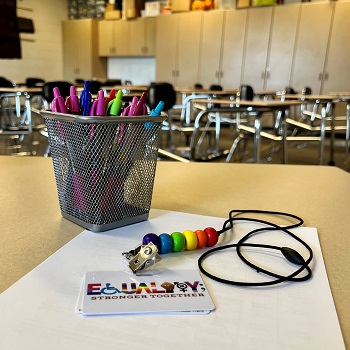Fenton community stands behind educators and inclusivity
A sea of red shirts flooded the Fenton High School Library Monday night when hundreds of people from the community turned out to a school board meeting to show their support for local educators. Stacks of extra chairs were quickly wheeled into the library as attendance grew unexpectedly large.

Soon the meeting was standing room only, with at least 230 in the crowd and some late arrivals spilling out into the hallway.
The cramped quarters didn’t stifle the passion of people eager to stand with educators who have chosen to wear a badge that reads “EQUALITY,” with different symbols for each letter representing diverse identities and abilities.
The badges worn by various school employees are meant to indicate that the wearer is safe to speak with and that students will be met with kindness and not judgment, said Chuck Miller, vice president of the Fenton Education Association.
“Wearing these badges is important to us and it’s important to our students,” said Miller, a high school chemistry teacher who attended the meeting. “It’s a way to show our students that we support them and we see them. The more our students are seen — the more they feel they have a community and support, the better they do, not just academically but socially.”
 In recent weeks, a tiny but vocal minority has protested against the badges as somehow inappropriate. But at Monday night’s meeting, the crowd sent a message in a show of numbers and speakers to indicate that the majority of the Fenton community supports an inclusive school environment.
In recent weeks, a tiny but vocal minority has protested against the badges as somehow inappropriate. But at Monday night’s meeting, the crowd sent a message in a show of numbers and speakers to indicate that the majority of the Fenton community supports an inclusive school environment.
Of 30 speakers during the public comment period of the meeting, 25 spoke in support of educators and the equality badges. That support meant a lot to local educators, Miller said.
“I have to be honest: After getting beat up about this for a really long time, it was really nice to have some people here to support us tonight,” Miller said. “It made us feel like somebody has our back in this.”
Chelsea Carter-Willbanks, a 2003 Fenton graduate who attended the meeting with her wife, said visible signs of support such as badges let students know they are in a welcoming and protective environment.
“I wish I had a teacher wearing this badge when I was in high school,” Carter-Willbanks said. “It would have made me feel seen and safe.”
Current Fenton students added their voices to the chorus of parents, educators and citizens speaking up in favor of the effort to ensure everyone feels accepted and supported.
“The badge makes me feel as a student more loved, heard, seen and cared for,” said Avary LaClear, a senior at Fenton High School. “They represent compassion in our community.”
The few speakers who voiced their opposition frequently cited what they believe is an “inherently sexual” nature of the badges.
MEA member Laura Wagonlander, an early fives teacher at Tomek Eastern Elementary in Fenton, disagrees.
“Sexual orientation is not sex,” Wagonlander said in her speech, forgoing her prepared remarks to directly address some of the concerns raised. “I have a picture of my family in my class. It announces my sexual orientation because it shows me with my husband.”
Critics also questioned how topics of sexual orientation would be addressed with younger students. Wagonlander believes the answer is remarkably simple.
“I have students with a mom and dad, one mom or one dad, two moms or two dads, or a grandparent,” Wagonlander said. “They’re curious. They ask questions. But once they learn it takes all kinds of people to make a family, their questions are done. That’s all they need to know at that age.”
The school board showed no signs of wavering on their current position of allowing educators and school staff to choose to wear the badge if they wish.
The next Fenton School Board meeting is scheduled for Monday, May 1, at Fenton High School.



